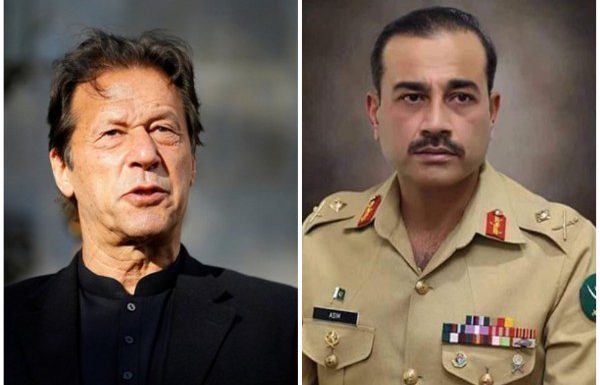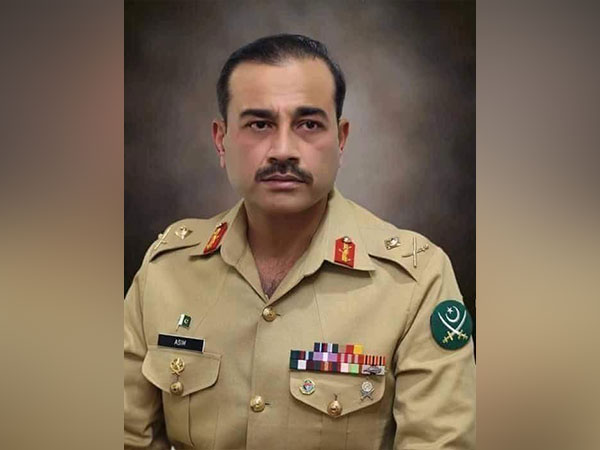Experiments in
democracy interrupted by long periods of military-led rule have shaped Pakistan’s
life. The difference in this winter of discontent is that for the first time, the
military is being challenged. Ousted premier Nawaz Sharif, addressing protest
rallies through video links from his London home, has named serving Army Chief,
General Javed Bajwa and other top brass.
Voices of some opposition
leaders are relatively muted. But when they call incumbent Prime Minister Imran
Khan a ‘puppet’, there is no hiding who the ‘puppeteer’ is. It is tough going
for an institution used to playing the umpire among its proxies, selecting and discarding
them by turns. Questioning it are yesterday’s political adversaries with deep
ideological differences turned allies today. Worse, they include yesterday’s
proxies – called laadla (favourite).
With five ‘jalsas’ (protest rallies) through
October-November and three more lined up for December, the 11-party Pakistan
Democratic Movement (PDM) is gathering momentum. Its Lahore rally slated for December 13 is Nawaz’s
direct challenge to Imran. The battle in the most populous and powerful Punjab could
bring both Khan and the army under greater pressure.
The cacophony is
caustic. When protestors chant “Go, Niazi, Go” their target is as much Imran
who rarely uses this surname, but also refers
to late A A K Niazi, who led the Pakistani forces in erstwhile East Pakistan to
surrender to the Indian Army in 1971. Unsurprisingly,
Khan and his ministers accuse their opponents of taking cue from India.
Analysts say the Army has lost
some of its image as the nation’s ‘saviour’.
But it has had a record of bouncing back and regaining control. It had
done so after losing the erstwhile east-wing and again, after a mass movement
brought Pervez Musharraf down.
Maulana
Fazlur Rahman is the PDM’s surprise Convenor. Like most Islamists, he has remained
on the right side of the military. Then,
the two mainstream parties, PPP and PML(Nawaz), are forever competing.
At the
other end of the PDM’s spectrum are ‘nationalist’ leaders and parties of Khyber
Pakhtunkhwa and Balochistan, targeted as ‘secessionists’ by the military,
irrespective of who holds the office in Islamabad.
These diverse forces have combined thanks to Imran’s handling
of the economy that is in dire stress, his failure to hold the prices of
essential commodities and the rising Coronavirus pandemic. Above all, he has been targeting just the
entire opposition with a messianic zeal in the name of corruption. This has
made various agencies and judiciary partisan and parliament redundant.
Support from sections of the judiciary and an
under-pressure-media has helped him. But like most people in power, Khan has
forgotten that all this support is but transitional and the army’s support,
transactional – till he delivers or shows the potential to deliver. He has
shown neither so far.
The Peshawar and
Multan rallies took place despite the government’s warnings of terrorist attack.
Imran also sought to put the fear of Covid-19, like the fear of God, but crowds
broke police barricades and milled at the venue. The Islamabad High Court this
week refused to ban protest rallies saying it had set the standard operational
procedures (SOPs) and now it was for the executive to decide.
A glance at
the military’s role in the country’s life that begun with General (later field
marshal) Ayub Khan, shows that rule by the generals — Yahya Khan, Ziaul Haq
and Pervez Musharraf –has meant that with bureaucracy in toe, the politician
was demonized — with some justification
— in the eyes of the public. They played favourites among the politicians, but
at each end, were forced to return the country to elections and civilian rule.
All these
generals headed the army and ruled directly or through pliable prime ministers.
That script is old, but situation is new. Not formally in charge, the army has
an alleged ‘proxy’ in Imran. During the rule by earlier ‘proxies’ of which
Nawaz was certainly one, the military was not exposed to attacks like the ones
at the four rallies. It is unrelenting
so far and the military has found no answer.
Nawaz
accuses the generals of ousting him and engineering the 2018 election through
which they ‘selected’ Khan. With his entire family targeted for graft and
himself declared an ‘absconder’, he has little to lose. Islamabad is lobbying
hard with London to secure Nawaz’s deportation. But the ‘sheriff’ is unlikely
to relent.
Nawaz’s apparent
aim is to cut off the top few generals from the
lower tiers of the army establishment and thus drive a wedge between the
military’s leadership and rank and file.
There is
dissatisfaction among the top brass at Bajwa’s extension as the Chief that Khan
worked out, upsetting the seniority line up. A media expose of graft involving
retired general Asim Bajwa is
attributed to an insider’s leak. He had to resign recently as Khan’s key Advisor,
a ministerial post.
The PDM has
declared a change of government by January next. This is political rhetoric.
But then, Pakistan has witnessed many changes triggered by mass movements.
Post-Multan
rally, coming weeks should see more detentions of the opposition leaders and
curbs on media. Alarm
bells are ringing over this showdown that neither could decisively win. The
Imran government is definitely stirred and on the back-foot, but is not shaken,
yet. Professional groups like lawyers and media who had helped bring down
Musharraf are keeping distance. The man on the street, used to shenanigans by
politicians of all hues, is aware that at some stage, the military could
intervene to ‘discipline’ everyone.
Fissures have
surfaced within the PDM and within member-parties. Some want to play down the
army’s role. While Nawaz and daughter Maryam are blasting the military, his
jailed brother Shahbaaz has called for a “national dialogue.”
The situation
could change with Punjab becoming as the main battleground. Imran could
sacrifice his protégé, Punjab Chief Minister Usman Buzdar, whom he has lambasted
for failing to block the Multan rally.
If Buzdar is
incompetent, critics say Imran is more so. But the fact is a government in
Pakistan has never gone because it was incompetent – it went because army said
enough-is-enough.
Analyst Zahid
Hussain notes that the opposition’s anti-establishment drive has sparked a new
political discourse across Pakistan. People are asking whether a new social
contract is required to rebuild flagging public trust in the state’s
institutions.
On the army-civil
relationship, Ayesha Siddiqa, a political scientist and author of the book
Military Inc tweeted right at the outset, on October 27: “Each party has an
interlocutor with the military but for a meaningful change, PDM parties will
have to start a dialogue with the army that can ensure a meaningful negotiation
of power for the long run.
But short of that,
things need to be done, by the political class, not the military. As Siddiqa
says: “A social contract will have to be much wider. It will have to extend to
smaller provinces but also religious and ethnic minorities. Pakistan has little
chance to become secular but a healing hand will have to be extended to
minorities or else it will remain exploitable.”
For the
foreseeable future, any notion that the army will simply return to the barracks
is naïve. At best, or worst — depending upon the reader’s preference — the ‘laadla’ may be changed.
The
writer may be reached at mahendraved07@gmail.om


